The Foundation SOS Children's Villages has been present in Serbia since 2004, creating families for struggling children and young people and helping them build a stable future, contributing to their communities' development.
Support to children, the young, and families at risk is provided long-term through the SOS Children's Village program in Kraljevo, the Strong Youngsters Center, and the three Family Support Centers (in Belgrade, Obrenovac, and Niš).
Transparency is one of the values this organization nurtures in its day-to-day work and its relations with its partners, donors, friends, and the public. On account of this, SOS Children's Villages Serbia is awarded the blue badge on the Neprofitne.rs platform to show complete transparency in their activities.
We spoke to the Foundation's national Director Vesna Mraković Jokanović and Finance Director Vesna Lekić about their values, mission, and the significance of transparency of the organization's work for the trust SOS Villages Serbia enjoys with the public.
What does transparency mean to you?
Vesna Mraković Jokanović: Our core values are: the courage to actively aid children who need help the most, the dedication to persevere in this mission for many years, the trust and responsibility. Transparency is essential in everything we do. To maintain our programs and keep providing efficient support to the children and young without parental care and the families in risk, it is crucially important that our activities are transparent – to the public, as well as to our donors, partners, employees, and friends in the country and abroad.
From 2004, we followed strict business and ethical standards in all our activities, respecting the privacy of all children, young people, and families involved in our programs. However, we do communicate with the representatives of the International SOS Children's Villages Network, state institutions and agencies, foreign and local donors, partners and employees, our members of the Board and the National Management Team, the media and the public, as well as our users. We always exchange information in a precise and timely manner.
All we do is based on trust and responsibility. Without those, the government could never decide to entrust us with children and the young's care to send families to our door. Without the trust of the families we work with, we could never have achieved our results. It is crucial to all our partners and donors to know that we are responsible and that the funding they provided will really be used the way it was intended. This trust is gained through transparency and readiness to show and prove, at every step, that we work following high ethical, moral, and professional standards, within the law and good practices of responsibility, and as good caretakers.
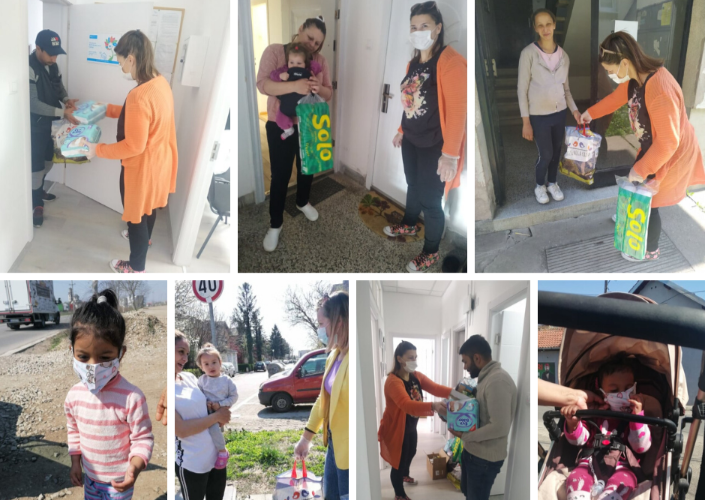
What is your connection to the community?
Vesna Mraković Jokanović: All the programs and projects undertaken by the SOS Children's Villages Serbia foundation directly face the local community. Primarily, this comes through intense cooperation with the institutions of social care, education, the local government, The Government of Serbia, ministries, and other relevant state institutions – with which we've had excellent cooperation going back years.
During the last 16 years, we've built a relationship of mutual trust and respect, thanks to which we have their full support in our mission to help children, the young without parental care, and families at risk build their future and contribute to the development of their communities.
An old saying goes: it takes a whole village to raise a child. That's more relevant today than ever because without the cooperation with daycares, schools, all the actors in communities where we live and work, it is impossible to take adequate care of children, provide them guidance and integrate them into society. Our donors' support is also essential to us, and so are all opportunities for our youngsters to get jobs and attain scholarships.
On the other hand, we always try to help as much as we can using our resources. We provide training to professionals and alternate care providers, organize activities advocating for children and families' rights, raise donations for children in need, families, or help the operation of other institutions and organizations.
By entering our programs: SOS Children's Village Kraljevo, our three centers for family support (Belgrade, Obrenovac, Niš), the Strong Youngsters center – children get a chance at a happier life, growing up and developing with warm words of support, love, and understanding. They grow up alongside their biological siblings and their SOS brothers and sisters, sharing their happiness and sorrows, toys and sweets, schoolyard stories. Young people get an opportunity to find employment and do jobs that allow them to live independently, while families at risk get to strengthen their parental capacities, keep guardianship over their children, and become enabled to secure for them more profitable growth and development.
Working with children and young people without parental care and families at risk, we contribute to their confidence, empowerment, and readiness to be equal members of society. We believe this is a vital segment that significantly influences the local community and its betterment.
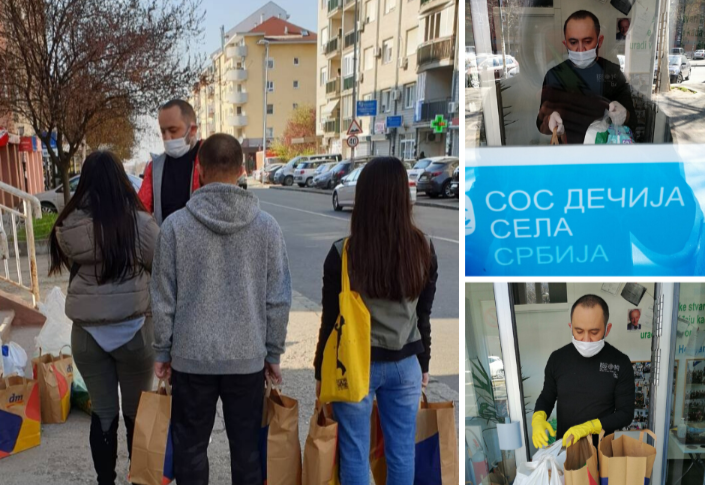
What achievements are your greatest pride?
Vesna Mraković Jokanović: We are proud to have been carrying out innovative and specific programs for children without parental care, families at risk of child separation, young people in need, and various other crisis aid programs in Serbia for the last 15 years. Our Foundation takes care of children and young people long-term, up until they are ready to live independently through various support forms. SOS Children's Village Kraljevo features a unique concept of care where guardians live in the family houses with the children and young people for 24 hour a day, 365 days of the year, providing guidance for their development and managing the household, aided by professionals from our psychology and pedagogy team. We are the only organization in Serbia that offers a home to larger groups of siblings without separation – biological brothers and sisters remain within the same family, which is a specificity of our way of care. When each young person is ready, they move to the Youth Community and then towards the third form of care – semi-independent living. During the last 15 years, 166 children without parental care from all over Serbia have found a home at Children's Village Kraljevo. Almost all have completed secondary education, many are in universities, and many have now started families and got children of their own – which we've nicknamed SOS grandchildren. We are proud that they're bravely walking through life, and they're keeping in touch with their SOS caretakers and educators. They see the Children's Village as their family where they can always come for advice and share their problems and their successes and joys. That remains as well for those who returned to their biological families.
Through our care center Strong Youngsters, established in 2016, we've actively worked with young people aged 16 to 30 who had, or still have, the status of a child without parental care or were involved in some form of alternate care. Along with economic empowerment and improved employability, the young people at our center receive individual psycho-social support and counseling, contributing to their confidence and skill improvement. In 2020, 167 young people went through the Strong Youngsters center, and in all of its five years of existence, we have had over 500 youths from the Belgrade area. We are particularly proud of the ten entrepreneurs we've aided in starting up their own business, and whose bakeries, mechanic's and carpenter's shops, hair and cosmetics salons, IT, marketing, and design agencies keep doing successful work. Likewise, we are proud of all our young people who, thanks to the training and tools provided, managed to secure their steady income and basic necessities of life successfully.
During 2020, our Family Support Centers in Niš and Belgrade offered various forms of support for 170 families at risk of child separation, including 584 children and adults. Thanks to their dedicated work, only one child among these ended up separated from their biological family. We have given out more than 1.000 aid packages containing food, hygiene products, protection, school gear, medicine, clothing and footwear, appliances, phones, and tablets for online school attendance; we've provided fuel for heating, home reconstructions, given out 849,379 kilograms of fruit and vegetables. We have helped with the employment of about a dozen parents. Even with the coronavirus pandemic in full swing, we've made ourselves available, going out to the homes and settlements where our users live, helping them with information and advice, giving out protective masks, disinfectants, providing medicine, and other urgent means of aid.
Since their founding, our Family Support Centers have supported more than 850 families and over 1.500 children and young people.
In the last ten years, through urgent aid programs, we've helped reconstruct schools following the earthquake in Kraljevo, provided support to the most endangered families and local communities after major floods. We have provided help to tens of thousands of refugee children and families in transit through Serbia. We organized training for guardians and professionals in the social care system to improve expertise on caring for children with special needs (trauma, children's rights). We actively work promoting and advocating for the rights of children and families in Serbia.
We managed to secure significant funding to support Serbia's children from EU funds and other international donors.
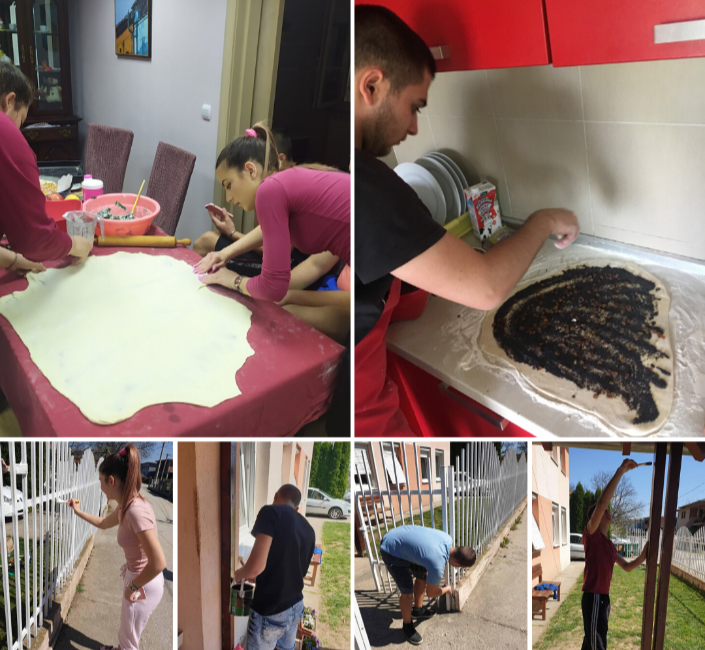
What are the most significant challenges non-profit organizations face in Serbia?
Vesna Mraković Jokanović: Many non-profits in Serbia are funded through public institutions and funds, donations of companies and citizens. Even though donors increasingly recognize the necessity of us all continue working together towards creating projects with a long-term positive impact on society, practice shows that there is still room for improvement.
In order to reach such levels of support and achieve meaningful societal change, it is first necessary that donors understand the point, the purpose, and the effects of our work. The awareness that each of us can improve children's lives and futures, young people, families, and marginalized groups motivates us to action. This is what forms long-term partnerships and facilitates non-profit organizations' work and the sustainability of the programs they conduct. On the other hand, this kind of support gives donors the ability to keep track of the activities their donations enable and have a clear picture of the quality of an organization's work and the broader impact on society.
The eligibility for public grants also poses a particular challenge to non-profit organizations. This often depends on the quantity, quality, and inovativeness, and swiftness of the solutions the program proposes, which proves to be a difficulty in our case. Providing support to children and the young remains a long-lasting process, and we do not offer quick solutions.
Unfortunately, in practice, we do not yet have a system of standardization and licencing for providing social care, which would enable NGOs to emerge as equal providers of these services and secure the sustainability of their work.
We hope the state will introduce further incentives for donors and humanitarian work overall, through greater tax cuts for citizens and companies, and we also hope that foundations will be made equal in practice to citizens' associations – as the law on non-government organizations already stipulates – allowing them to apply for grants with various public funds in Serbia.
All of this contributes to the sustainability of the efforts of non-government organizations. If we keep in mind the widespread prejudice against the non-government sector and the lack of transparency in public funding contests, we face a very challenging environment for long-term work.
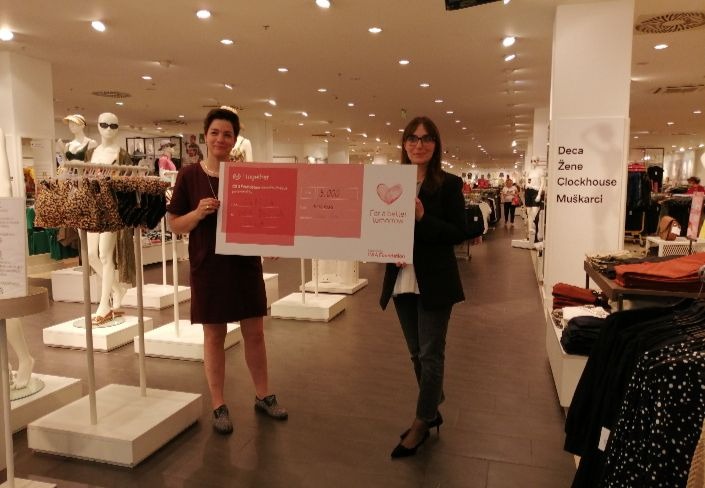
In what ways do you practice transparency in your work?
Vesna Lekić: Financial responsibility and transparency are among our fundamental values. We've recently focused on strengthening our administration and finance division by hiring professional staff who can respond to various donors' demands in the context of local legislation and international standards. We established processes and procedures within the framework of the National Regulation on Finance Management, Regulation on Internal Control, Regulation on Accountancy and Accounting Policies, Regulation on The Fight Against Corruption, Regulation on Whistleblower Protection, Regulation on Acquisitions, Regulation on The Use of Company Vehicles and Business Trips, Regulation on Cash-Based and Cashless Payment, Regulation on Donations In Kind and Distribution, and others. To maintain transparency, each of the regulatory texts prescribes what actions must be undertaken by multiple persons, along with double-checking the documentation and authorizations for the procurement of any goods and subsequent payment. In this way, internal control has become an inseparable part of all our working processes. The regulatory text that deals with procurement is adapted to different donors' requests, whether they be public, private, or physical persons, with precise definitions of the procurements themselves, with or without public announcement.
Contracts are signed with donors specifying the purpose of the donation, with deadlines for spending funds and deadlines for reporting. Through a regular process of monitoring, regular internal control and quarterly regional financial control, an annual financial audit is conducted to verify the correctness of financial data and positions in the Balance Sheet, Profit and Loss account and Notes to the financial report when it comes to local legislation and correctness of Assets and Liabilities Balance, Statement of financial activities, Changes in equity, Cash Balance, Dedicated donation Balance and Notes to the Assets and Liabilities positions when it comes to Standard -1 of the International Organization of SOS Children's Villages.
We worked a lot to raise awareness with our employees about the existence of corruptive actions through the leaflet and poster campaigns that communicated concise information about the essential steps in recognizing and reporting these acts of corruption. Working on a higher level now, we have distributed adapted leaflets to our donors as well and the citizens with whom we enter contracts on long-term financing through a system of permanent accounts. All the members of our "Golden Heart" Club receive regular newsletters in which we inform them of our work, and key information can be found on our website as well.
As an organization, we operate responsibly and stay up to date, fulfilling all our obligations towards the state, donors, suppliers, and our employees within arranged deadlines. We are seen as a trustworthy employer, partner, and service provider.
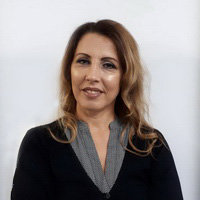
Vesna Mraković Jokanović: Our partners are entitled to visit our programs and to witness first-hand the way we work and the quality of services, of course, while respecting the right to privacy of the children in our care and the families we work with. Often, these visits include conversations with young people above the age of majority or family members about their experiences and changes in their life attained with our support.
Apart from keeping a database of programs, through which we track quantitative and qualitative aspects of work, and which enables us to be aware at any moment of the number of users of our support, their structure, and the execution of individual support plans, we also regularly conduct self-evaluations and external evaluation of our programmatic work. A necessary aspect of these evaluations and analyses is the surveying of our users, key collaborators, and partner organizations such as our colleagues from social care institutions, schools, daycares, healthcare institutions, local communities, from whom we receive feedback evaluating our work and recommendations for improvement.
All our postings for new jobs, contracting external contributors, external training are publicly posted on our website and social media. The calls for providing various expert services always have defined criteria by which we select the best offer.
Thanks to high-quality work, knowledge, experience, and openness, in the last 15 years, we have gained significant trust and support from our friends and donors, without which our work would be impossible.
Our mission is clear, and all of our work is focused on its accomplishment. Communicating with every target audience and sector of the public, we use a clear and unambiguous tone, trying to convey the desired message and emotion accurately. We sincerely believe that this way, we build trust, which supports our work and our programs enjoy with the broader public.
Many citizens and companies decided to support us due to the trust we have gained through transparency and openness, enabling us to keep our programs running and start up new ones.
We communicate with the public through the Foundation's website: www.sos-decijasela.rs, the social media Facebook, LinkedIn and Instagram, and traditional media. We strive to be fully transparent and open and provide information and content which relates to the audiences we target.
Our website is where you can find up-to-date information on the Foundation's activities and programs. There's also the Foundation Statute, and we regularly post our Annual work reports.
Social media, being real-time platforms, allowed us to have two-way communication with our followers, which lets us develop a closer relationship with fellow citizens. Numerous messages and comments we receive attest to that. Although our social networks are usually comprised of people who share our values and are willing to support us in building a loving home for every child, our work's best reflection comes from our critics. Talking to them gives us a clearer picture of what we can improve in our communication, increases our work's visibility, and improves our messaging. This is why social media act as a virtual mirror to us.
We are always open to media inquiries. We respond to calls and invitations for interviews. We are frequent guests at professional conferences and congresses, where we exchange opinions, attitudes, and experiences with colleagues and the broader public's representatives.
We have special procedures in place regarding our donors, which include submitting all relevant reports. And thus, our donors have a clear picture of the organization's work, how their funds are used, the impact their donation had on society, and the improvement of children's quality of life, the young, and families included in programs.
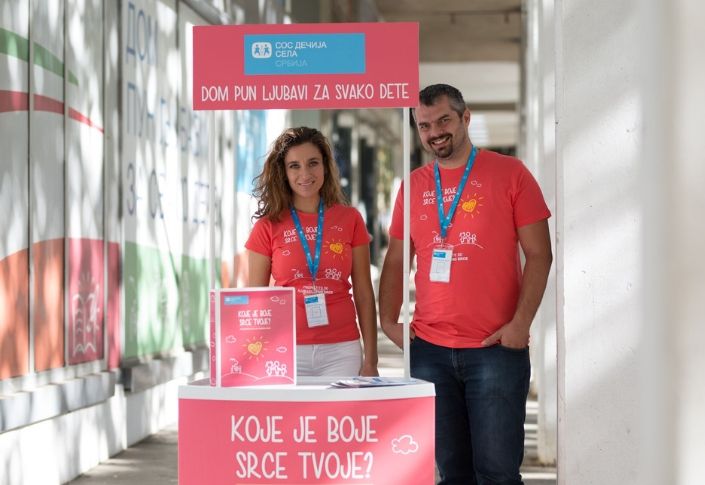
What benefits does the platform Neprofitne.rs bring to the non-profit sector in Serbia?
Vesna Mraković Jokanović: Platforms such as Neprofitne.rs are a vital source of information on the work of the non-profit sector in Serbia. When you have a chance to search information, form an image about an organization's activities, the ways their donations are used and the effects of their work all in one place, there's a great chance you'll more easily reach a sound decision on where to allocate your company's funds intended for corporate social responsibility.
Channels such as this, on the other hand, increase the visibility of our organizations and allow us to display our results more broadly. So, platforms such as Neprofitne.rs are very beneficial and relevant to both the non-profit sector and the potential donors.
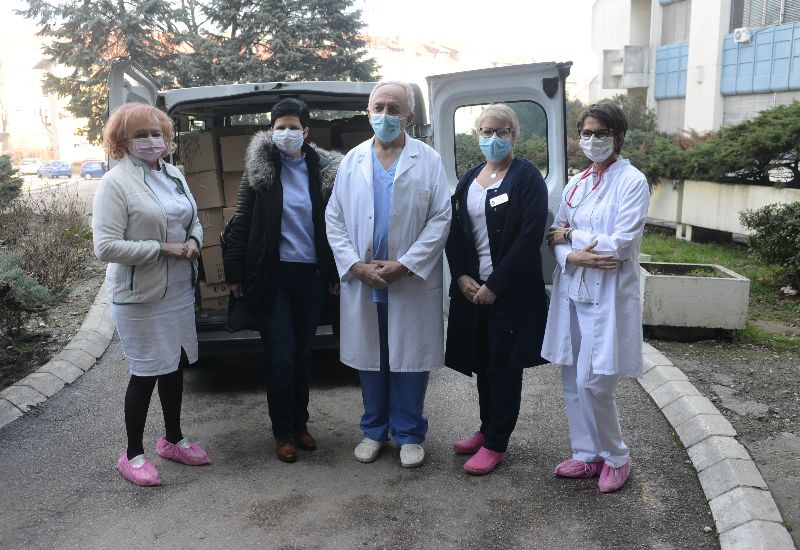
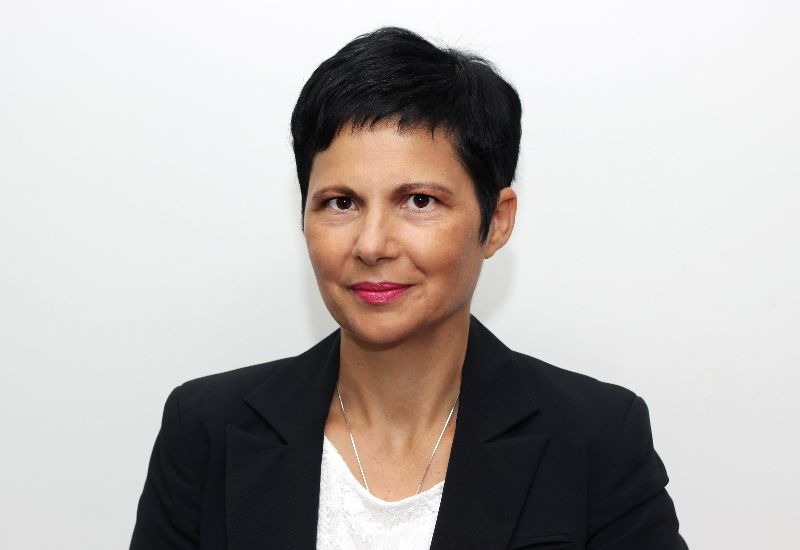

Leave a comment